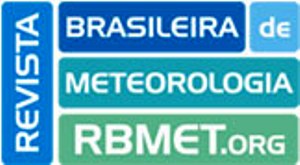The Metropolitan Area of São Paulo (MASP) is one of the largest urban centers in the world. The significant atmospheric concentrations of ozone, inhalable particles and other pollutants in the MASP raise serious air-quality concerns. In this study, we consider gases, particulate matter (PM) and cloud processes, with a focus on sulfate chemistry. The Regional Atmospheric Modeling System mesoscale numerical model was used in conjunction with detailed scavenging models to compare varying PM mass spectra and size distributions. Field data were collected during the July 1989-May 1990 and February-October 2000 campaigns. Adjusted-urban and rural spectra seem to fit better with observed results which improved the scavenging numerical modeling. Correlations between modeled and observed concentrations were better when the model included rural and adjusted-urban spectra, suggesting locally dominant below-cloud scavenging. Spatial variability analysis and numerical modeling also revealed that the varying sulfate rainwater concentrations indicate below-cloud removal process dominance.
air pollution; sulfur compounds; numerical modeling; scavenging processes; rainwater chemistry










